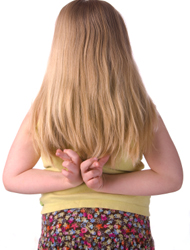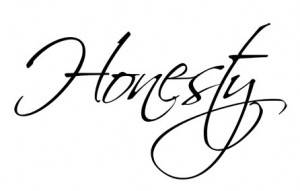5 things we must know about children who lie,
How to deal with lying.
- Lying may begin at the age of 2 and generally peaks at about 12
- Some lying may be healthy imagination and others may be to avoid hurting themselves or others.
- Most lies are about avoiding trouble or punishment, or to look better than others.
- Some kids tell lies just to see what would happen if…. or just for the fun of it “how will they react?”
- Those who tell lies many times have great cognitive skills.
How do you deal with this? First understand your own shock that will take place the first time your child does not tell you the truth. You will be shocked! Then are they old enough to understand what they are doing? Help them to understand the value of telling the truth and suggest that you believe they may know more than they are telling you about. If they come clean, thank them and praise them for doing so.
Ask questions that does not give them the opportunity to deny what has happened. If your child spilled the milk do not ask “if they spilled it?” , instead ask them “why it happened”. In any case, make sure they know that you disapprove of lying and that it is the wrong way of handling a situation. Help them to appreciate that trust is at the heart of the matter and that you expect them to tell you the truth.
Most important remember that our children hear and see everything we do and say. Children cannot tell the difference between a small and big lie, it is all the same to them. The more they see and hear lying taking place the more they believe that it is normal behavior. So really – raising honest kids starts with each of us!

 All of us know that honesty is one of the qualities that we look for in our friends, work associates and close relationships. In fact it is a factor that is measured in those that run for political office and yet I cannot imagine anyone that I know that has not at some time not told the truth about something or withheld information that would have completed the story.
All of us know that honesty is one of the qualities that we look for in our friends, work associates and close relationships. In fact it is a factor that is measured in those that run for political office and yet I cannot imagine anyone that I know that has not at some time not told the truth about something or withheld information that would have completed the story.